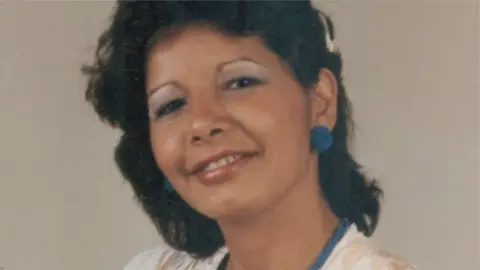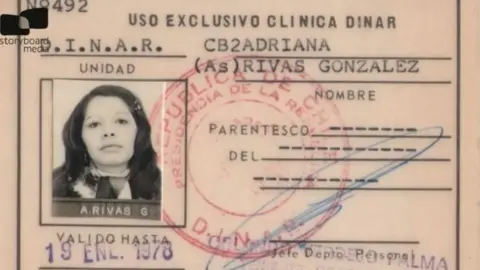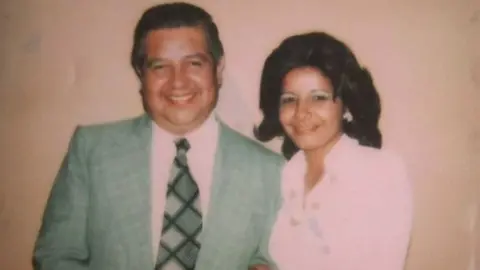Adriana Rivas: Pinochet-era suspect loses extradition appeal
 Storyboard media
Storyboard mediaA woman suspected of involvement in the kidnapping of seven people during the rule of General Augusto Pinochet in Chile is one step closer to facing charges, after a court in Australia quashed her appeal against extradition.
Adriana Rivas, 68, has been living in Australia for more than four decades but is accused of working for Chile's secret police in the 1970s.
She was arrested in Sydney in 2019.
Ms Rivas could still appeal against this decision.
Chilean authorities accuse Ms Rivas of having participated in the disappearance of the secretary-general of Chile's Communist Party, Víctor Díaz, and six of his supporters in 1976. The seven are presumed dead.
She is facing charges of aggravated kidnapping. Chile has filed an extradition request to Australia, which she has been fighting.
Who is Adriana Rivas?
Ms Rivas was a secretary for the infamous chief of Chile's secret police force, Manuel Contreras, from 1973 to 1976. Contreras died in 2015 while serving a sentence of more than 500 years for human rights abuses.
Ms Rivas worked at the National Intelligence Directorate (Dina), the secret police force founded by Gen Pinochet to hunt down his political opponents.
 Storyboard media
Storyboard mediaThe Dina was at the centre of Gen Pinochet's campaign to silence opposition to his rule after he seized power in a military coup in September 1973.
Its agents abducted, tortured, and killed thousands of people before the agency was replaced by the equally brutal CNI, an army intelligence battalion.
More than 40,000 people were politically persecuted and of those, more than 3,000 died or disappeared during the Pinochet era, which lasted from 1973 to 1990.
What has she said?
Ms Rivas has denied involvement in the kidnappings, but in a 2013 interview with Australian broadcaster SBS she described her years at the Dina as "the best of my life".
 Storyboard media
Storyboard mediaShe told SBS how she was given an allowance for clothes, invited to glamorous events, travelled in luxury cars and stayed at upmarket hotels.
Asked about the torture carried out by Dina agents, she said that "they had to break the people - it has happened all over the world, not only in Chile".
While Ms Rivas has denied taking part in any torture sessions, witnesses alleged in interviews given to documentary filmmaker Lissette Orozco that she was one of Dina's "most brutal torturers" who allegedly played a key role in the elite Lautaro Brigade, which was tasked with killing the leadership of Chile's underground Communist Party.
Ms Orozco, who is Ms Rivas' niece, spent five years making a documentary about her aunt, which was screened at the 2017 Berlin film festival.
But as she found out more about Ms Rivas's involvement in the secret police, the film became a journey which shows the filmmaker increasingly confronting her aunt in conversations via Skype as well as talking to those fighting for justice for Dina's victims.
What will happen next?
During her appeal, which was rejected on Thursday, Ms Rivas questioned the authenticity of documents which alleged she had been a Dina agent.
Ms Rivas can take her fight against extradition all the way to the High Court of Australia, a process which could prove lengthy.

